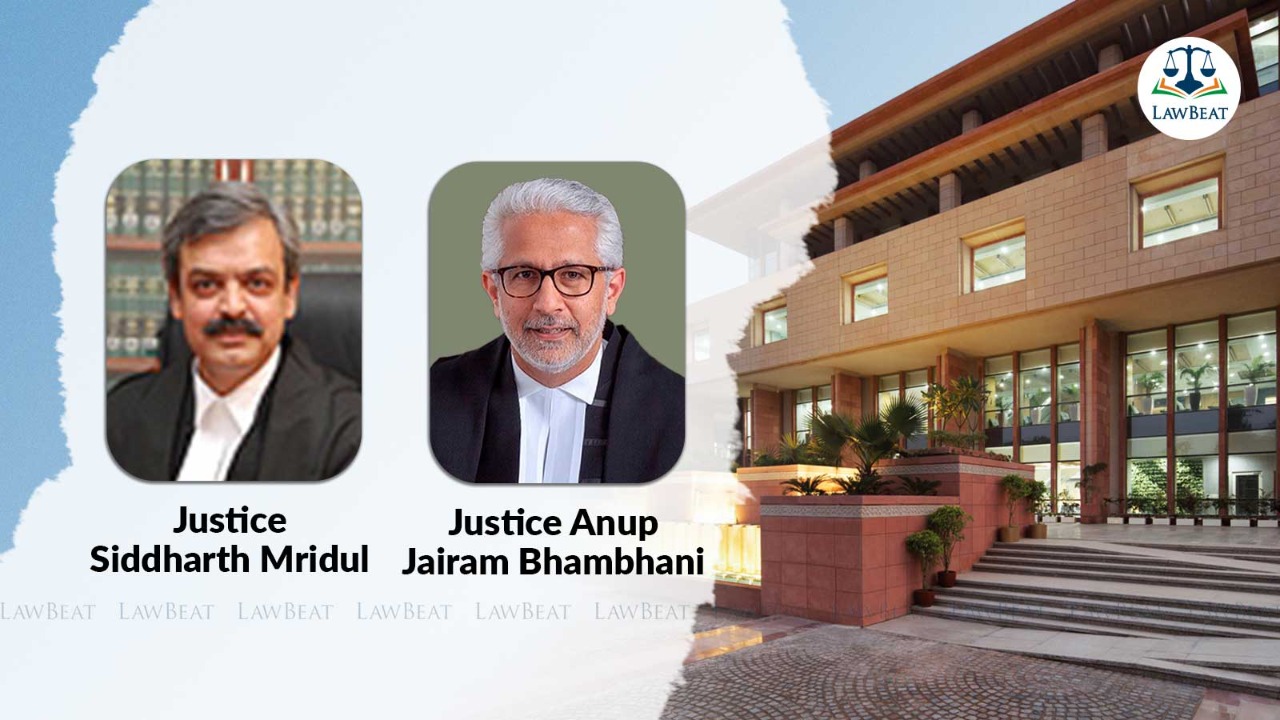“Sensitive approach necessary while dealing with Child Rape Cases”: Delhi HC upholds conviction of 1-year-old's rapist

A division bench noted that nothing is more heinous than a crime against a child upheld the trial court's order finding the accused guilty of rape and sexual assault on his niece.
Noting that nothing is more heinous than a crime against a child, the Delhi High Court upheld a trial court's order sentencing a man to life imprisonment for raping his one-year-old niece.
A division bench of Justice Siddharth Mridul and Justice Anup Jairam Bhambhani observed that it is necessary that the courts have a sensitive approach when dealing with child rape cases and ordered,
“In view of the foregoing, in our considered view, the prosecution established the guilt of the appellant beyond a reasonable doubt. Consequently, neither the conviction nor the sentence awarded to the appellant, by the learned Trial Court warrants any modification. Resultantly, the judgment and order on conviction dated 11.10.2019 and the order on sentence dated 31.10.2019 are both hereby upheld.”
The court also observed that the impact of such a crime on a child's mind is likely to be lifelong. Article 39 of the Indian Constitution provides a special safeguard for children, stating that the State shall, in particular, direct its policy towards ensuring that the tender age of children is not abused and that children are given environmental opportunities and facilities to develop in a healthy manner and conditions of freedom and dignity; and that childhood and youth are protected against exploitation and moral degradation, the court said.
The division bench further noted that there is no doubt that rape is a heinous crime, against the victim but also against society as a whole, and offences against minors, particularly sexual assault, are increasing at an alarming rate, necessitating the “adoption of legislative wisdom” by the courts.
The bench added that as the victim of rape is left devastated by the traumatic experience, as well as an unforgettable shame; being haunted by the memory of the horrific experience forcing her into a state of terrifying melancholia, the plight of a victim and the shock suffered can be felt instinctively.
“The torment on the victim has the potential to corrode any civilized society's poise and equanimity. A murderer indeed destroys a victim's physical frame, whereas a rapist degrades and defiles the soul of a helpless female,” the bench stated.
The court was hearing a plea filed by one Bagender Manjhi, who was convicted for the commission of offences punishable under Section 376(2)(f) (punishment for rape of woman below 12 years of age) IPC and Section 6 (Punishment for aggravated sexual assault) read with Section 5 (Aggravated penetrative sexual assault) and 3 (Penetrative sexual assault) of Prevention of Child Sexual Offences (POCSO) by the trial court in October 2019. Manjhi was sentenced to life imprisonment with a fine of Rs.20,000.
The counsel for Manjhi argued that apart from the prosecutrix’s parents, no other public witnesses had been examined by the prosecution to prove his guilt. It was also argued that the parents' testimonies were untrustworthy because the witnesses in question were the prosecutrix's parents, and that the said testimony was uncorroborated.
The counsel also claimed that there were discrepancies in the parents' testimony and argued that, because the parents were the only public witnesses other than the police officers and medical witnesses examined by the prosecution, it was critical to determine whether minor contradictions in witness statements could be used to dismiss prosecution evidence as a whole.
To this, the court stated, “If the court finds the evidence adduced, worthy of being relied on, then the testimony must be accepted and acted on, even though there may be other witnesses available who could potentially be examined but were not examined. Thus, PW-1 and PW-2 (the minor girl’s parents) cannot be characterized as “interested witnesses” simply because they are the parents of the prosecutrix; and nothing from the record or in the submissions of the appellant even remotely suggests that PW-1 and PW-2 had any motive in framing the appellant for the commission of such a heinous crime. ”
Rejecting Manjhi’s contention that he had been falsely implicated in the case by the parents as a “mere after-thought”, the court held their testimony as “credible” and “reassuring” because they witnessed the commission of the crime and were also present at the relevant time.
On the Medical Evidence aspect, the court held that the medical evidence on the record completely corroborated the oral testimony, that the prosecutrix and the appellant were both medically examined by All India Medical Sciences (AIIMS), New Delhi on December 1, 2012, and the same had been proved on record. “The contents of the abovementioned MLC have been perused by this court in their entirety and they admit of no sense of doubt or manipulation in any manner and of any kind. The MLC of the prosecutrix (supra), confirms that the hymen of the prosecutrix was torn; further, there was blood at the introitus, abrasion at the mucosal tear; furthermore as per the FSL report, the appellant‟s semen was found on the undergarments worn by the prosecutrix at the time of the commission of the offence,” the court observed.
Conclusively, the court dismissed the man’s appeal and upheld the trial court’s order holding him guilty of the offences of rape and penetrative sexual assault on the minor girl.
Case Title: Bagender Manjhi v. State (Govt. of NCT) Delhi
